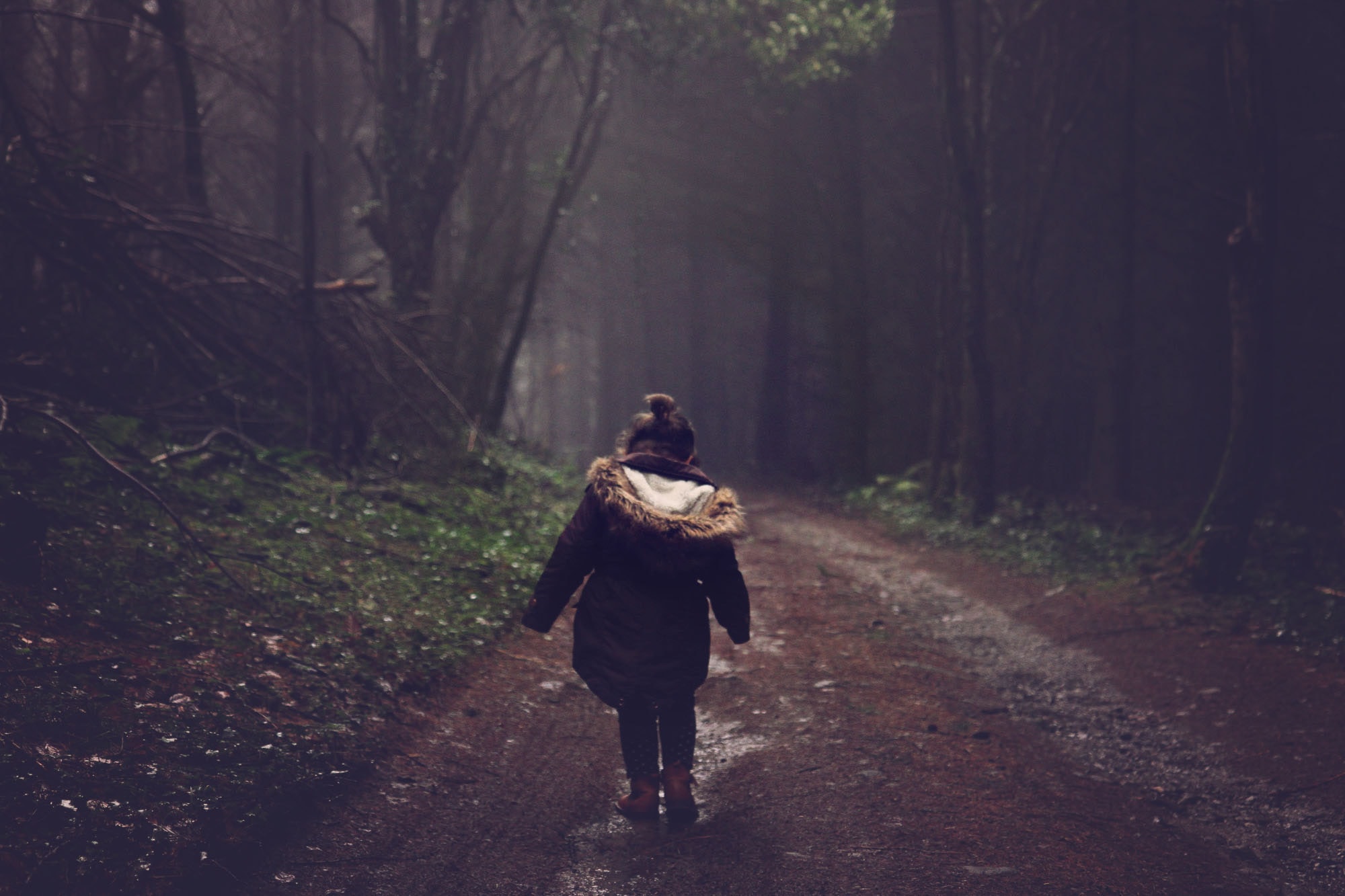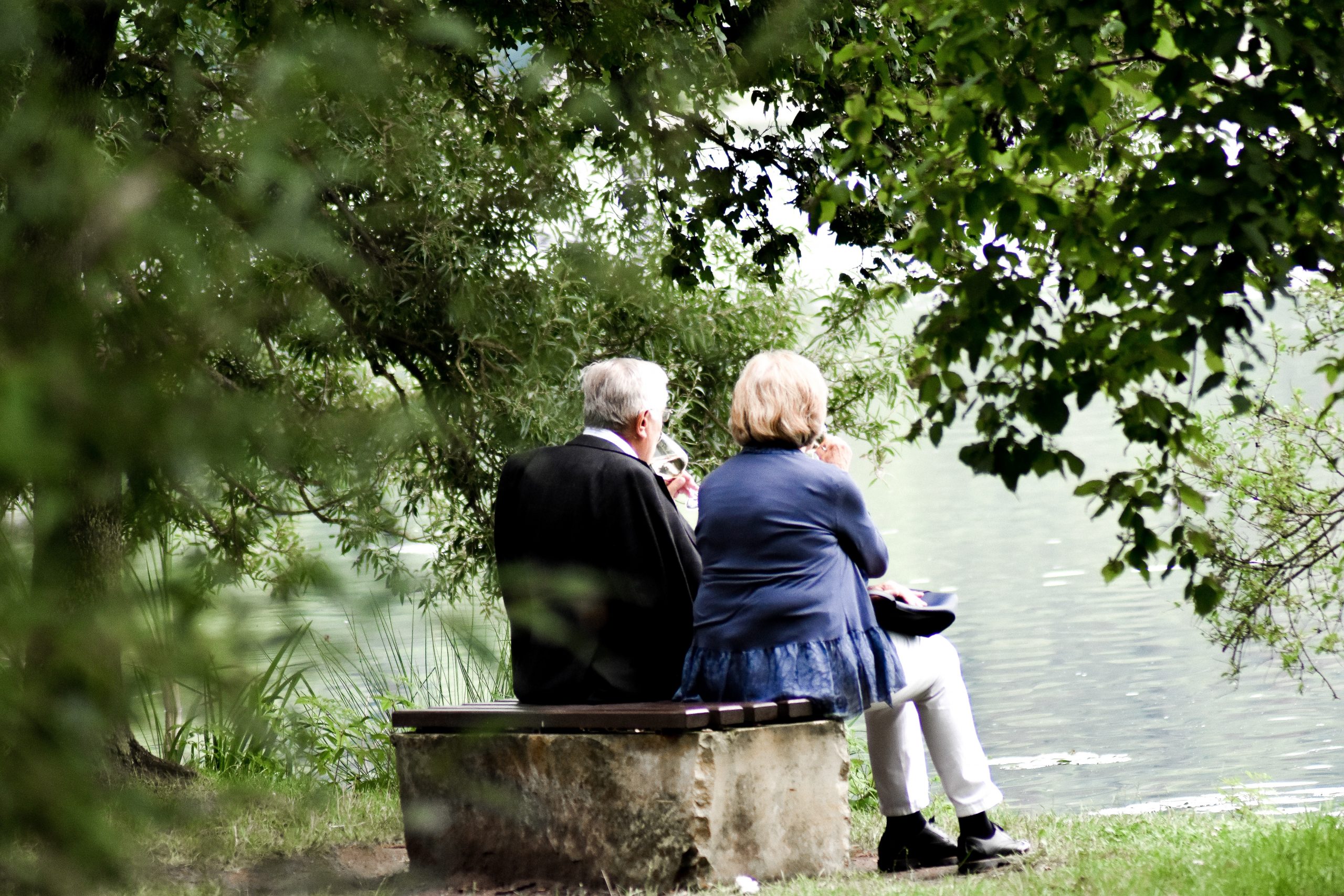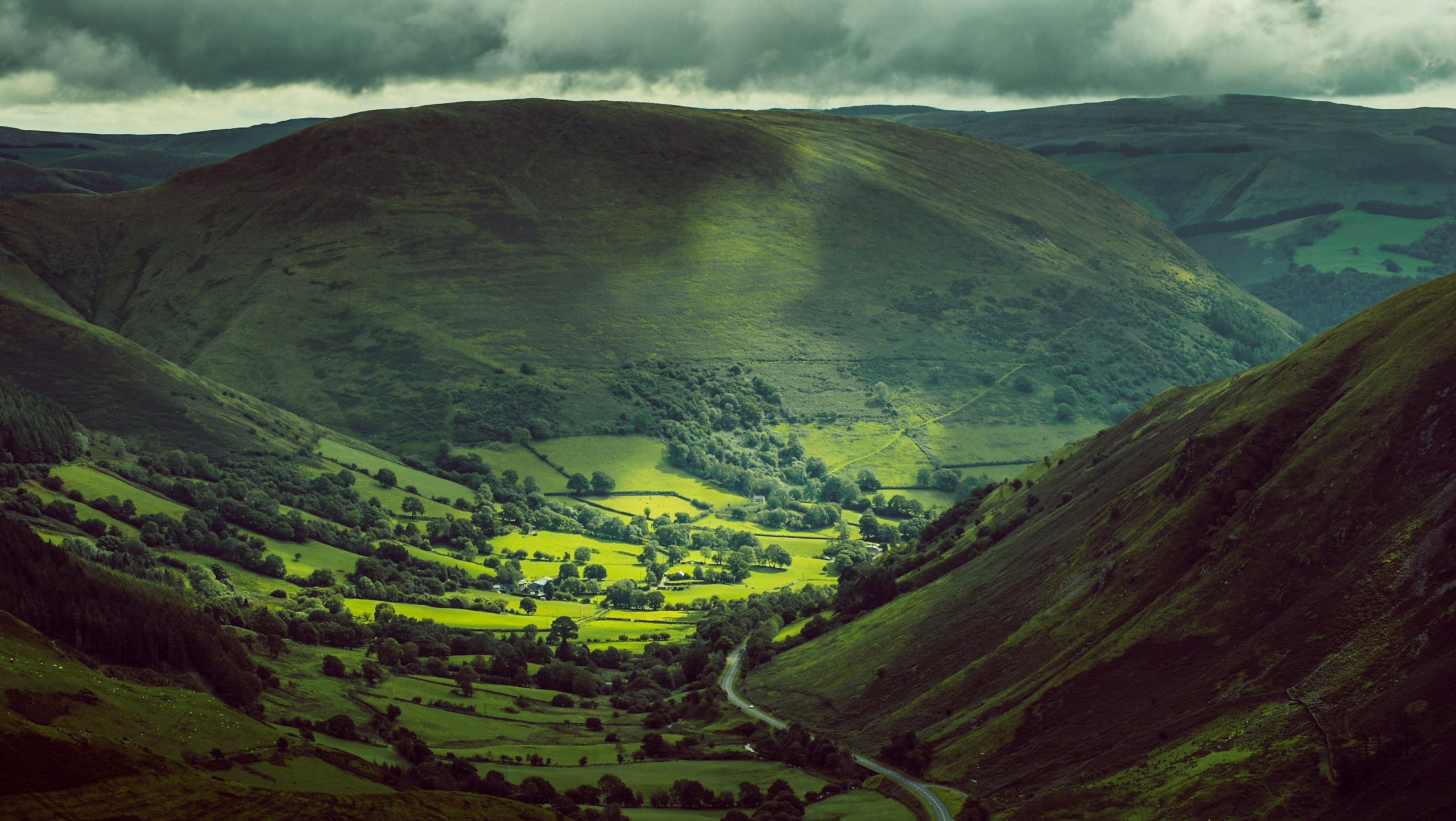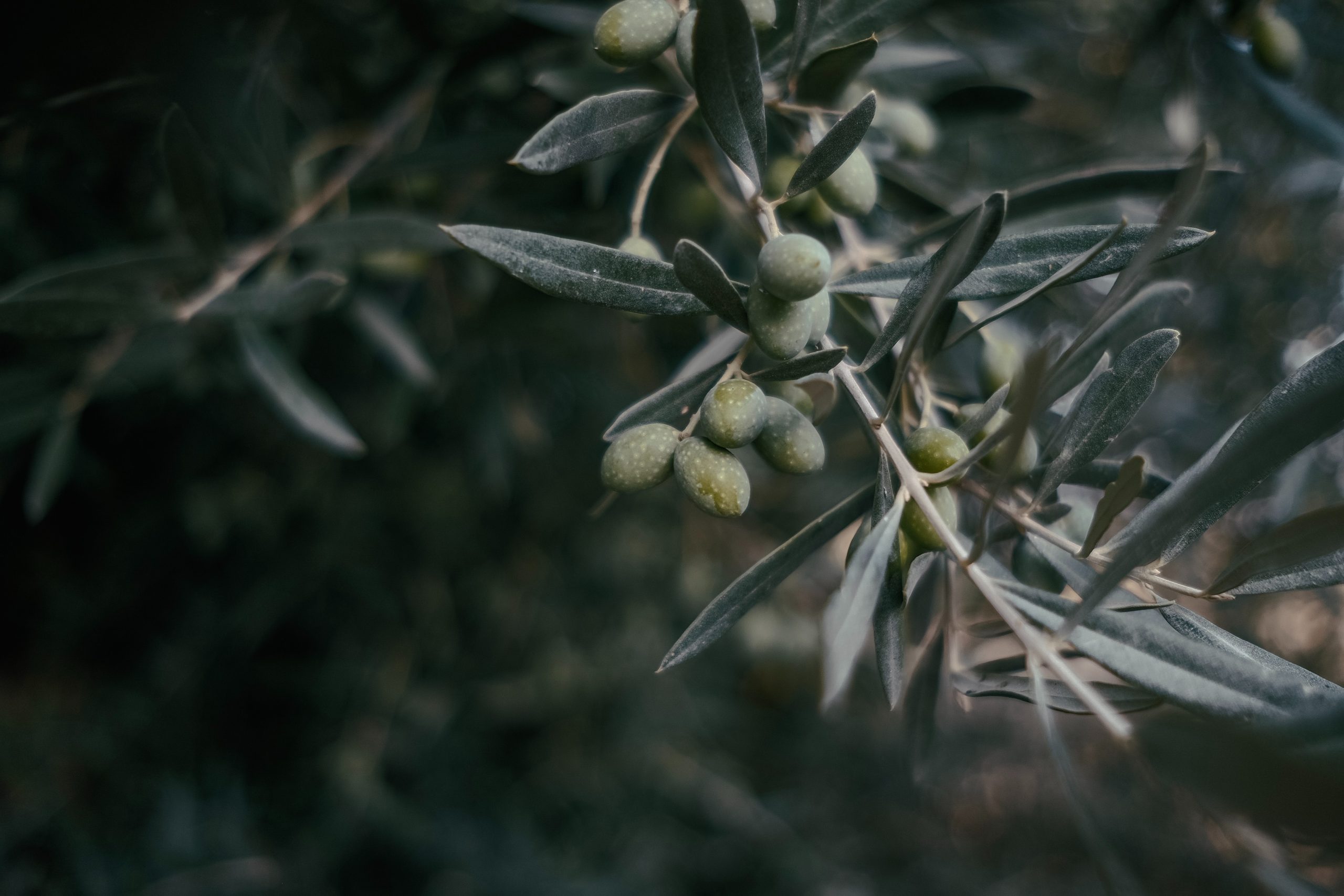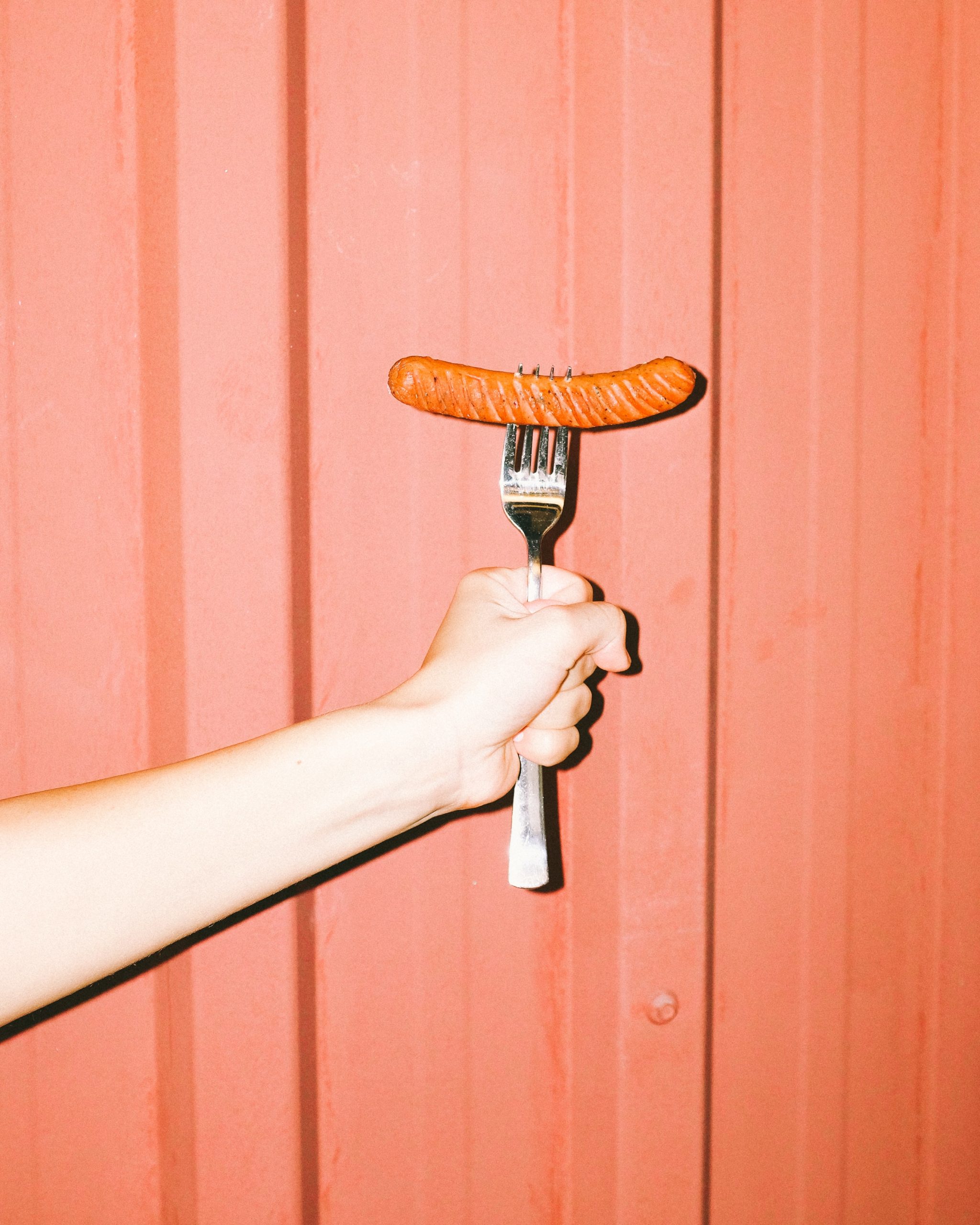On the northeast end of the island, on top of a cliff, there’s an orchard that has no right to be there. Maybe no one told those olive trees that they can’t grow on rock, or maybe they did, and the trees ignored them anyway, and went ahead and carved their roots in the hard limestone. Stubbornly, stoically, making centuries as brief as summers.
The orchard belongs to the Vasdekas family. It has been with them ever since that first olive shoot defied all laws of botany. It’s hard to get to, there’s only one road that’s not really a road, and its yield was small, but the Vasdekas have held onto the Rock like a mother clutches her baby. People say that it’s that orchard that lent the family its character, that made them unyielding and headstrong and not very fond of people, that convinced them to take down their house in the village and re-build it, stone by stone, on that cliff.
*
Kyr Vasilis Vasdekas unfolded large pieces of hemp canvas (cuts from Venetian sails, his mother used to say) and spread them around a tree. Then he picked up a wooden stick twice his height and raised it to the silver leaves. With a slow and rhythmical sway, the old man struck the branches, making a rain of green olives.
Out in the sea, boats kept coming from the Turkish coast, as they had been for two years, packed with people, so overloaded they barely stayed afloat. Syrian people, fleeing from a war, walking for miles or carried in trucks before finding the coast, where they got ferried across, for five thousand a head. Kyr Vasilis stared at one of those boats that seemed to roll particularly wildly in the Aegean chop.
Treacherous waters, these. They took Kyr Vasilis’ first son when he was only twenty. His other boy drowned in the Indian Ocean. It was more than a month before they brought the body back to Lesbos.
Then a gasp of wind, a wave that cracked like a whip and the little boat capsized. Not the first time and not the last. Many of those souls never made it across. Kyr Vasilis reached in his pocket for his phone and walked west, as fast as his legs could carry him, to get a signal from the antenna up on the mountain.
“Yes?” said Thomas, the young coast guard.
“Another wreck,” said Kyr Vasilis.
“Where?”
“Two miles from the Rock.”
“Okay, Kyr Vasili. Sending a boat now.”
The breeze filled his nostrils with sea salt and carried some of the spray on his cheeks, as Kyr Vasilis walked back to his orchard. He sat down, tore a piece of bread from his loaf and unwrapped a little parcel of cheese, watching the coastguard fish people out of the water. A lot of children. A lot of them were without mothers or fathers. The old man wrapped up his food and put it back in his goatskin satchel. Then got up, picked up his stick and continued his work.
When the sun set, Kyr Vasilis lifted the last basket onto his truck, shut the rusty tailgate and drove to the olive press. Built two centuries ago, it stood in good condition, Kyr Vasilis spending every winter fixing the falling plaster, varnishing the thick beams and oiling the cogs that move the huge circular stone. He unloaded his cargo, put the heavy lock on the wooden barn doors, and decided to have an ouzo before dinner.
At the village’s kafeneio, Kyr Vasilis sat in his usual chair at his usual table, in a corner where light had trouble getting to.
“Hello, Kyr Vasili,” said Kyr Manolis, the kafeneio landlord, a man who, adhering to the standards of his profession, sported a large belly and a large moustache. “What will it be?”
“A twenty-fiver,” said Kyr Vasilis.
When his order arrived, he took a sip of his anise-strong drink, had a bit of grilled octopus drizzled with lemon, and sat back, his hand resting on his walking stick.
The kafeneio was heavy with smoke, cooked seafood and evening chatter, most of which was, as it had been for a long time, about the immigrants.
“They must leave,” said Kyr Giorgis, the big merchant, staring at everyone with his glittering eyes. “What will happen when their kids go to school with our kids? What will happen when they turn our kids Muslim?”
“They tell us that they’ll stay in their camps,” said Kyra Maria, Chair of the village’s co-op, and easily the biggest landowner. “But they’ll start spilling out, trust me on that. Send them back, I say. Do you hear, Mayor?”
“It’s all arranged,” said Kyr Yannis the Mayor, who dyed his hair and wore a golden bracelet and a golden chain to match. “They’ll move them soon.”
“Then why are they building another of those bloody camps?” spat Kyra Maria.
“The flow is increasing; they have to be hosted somewhere.”
“Hosted? Hosted? Their boats should be turned back, in the first place, and if they refuse, grapple them and tow them back. Papá-Nikola, won’t you speak?”
The bearded priest, who himself had spread the fear about kids turning Muslim, agreed. “Send them back where they came from. This is a Christian country.”
Kyr Manolis, stood behind his counter and didn’t speak. He didn’t think the immigrants should be sent back. Back where? But he kept wiping the countertop.
Kyra Angela, a small farmer, disagreed as well. But she focused on rolling her cigarette. She owed money to the co-op and the big merchant and she’d best not go against them.
So, the rant went on until it was dinner time, and everyone went home. Kyr Vasilis stayed back. It was one of those nights that he didn’t feel like having a meal. All he needed tonight were a couple more ouzos, a small plate of mussels and pickled vegetables, and his thoughts.
Maybe he’d had more than a couple when he got into his truck and drove off. If Kyra Eleni, his late wife, was around, she’d calm him down. Most people are good, Vasili, she’d say. It’s the lords of the land that stir hatred. Then the lords need changing, Kyr Vasilis would reply. One day, Vasili. Let me make you a coffee and sober you up.
On the way home, the road passed by the immigrant camp. Outside the tall, barbed wire fences, Kyr Vasilis saw the merchant’s car. Its presence didn’t register in his mind at first, but then he noticed two more people. One, inside the fence, revealed in the moonlight. A young man, in his twenties, with a cigarette on his lips. He took a deep drag and stared at Kyr Vasilis, his eyes ordering the old man to move along. And in the car, in the passenger’s seat, next to Kyr Giorgis, a boy. A boy of about twelve. When the truck lights hit the boy’s eyes, Kyr Vasilis saw the emptiness. A boy who had nothing to hope for.
Kyr Giorgis turned as Kyr Vasilis drove by, and, like the man behind the fence, gave him a none-of-your business stare, followed by a get-lost-old-man nod.
The old man slowed down. He thought about his legs. They weren’t as strong as they used to be. His neck was creaky, his back as stiff as a five-hundred-year-old olive tree. Often, he had thought that the right ending for him would be to grow roots and turn into one of those trees. In fact, he was absolutely certain that Kyra Eleni had done so. He could swear that a few days after she died, there was a new olive tree in the orchard. As old as the others, but new, nevertheless.
He stopped the truck, got out and started walking. The man behind the fence rattled the barbed wire.
“Old man!” he said in Greek, and then something in his own language. Something that you didn’t need a translator to understand. A blade had appeared in his right hand, the cigarette still on his lip, his body looking like it could just spring over the fence.
Meanwhile, Kyr Giorgis came out of his car.
“Turn back, Kyr Vasili,” he said, buttoning his trousers and tightening his belt.
“What are you doing with the kid?” asked Kyr Vasilis, not slowing down and keeping an eye on the man behind the fence.
“Not your business,” answered the merchant.
The two men came face to face, Kyr Giorgis blocking the way to his car.
“Step aside,” said Kyr Vasilis.
“Piss off, old man.”
There’s a thing about old trees. They rarely move but when they do, you don’t want to be in their way. Kyr Vasilis raised his stick and struck Kyr Giorgis on his temple, knocking him down like a sack of manure.
“You bastard!” shouted the man behind the fence, trying to get through a small opening on the wires.
Kyr Vasilis put one hand on the car’s roof and leaned in. “Come on.”
The boy hesitated. In his brief life, he had changed owners a few times. But he was usually sold or given as a way of paying a debt. It was all transactional and dull, like buying half a chicken at the butchers. He hadn’t been… stolen by an owner before. Only, this man didn’t seem like an owner. An unexpected image flashed in the boy’s brain. Picking up lemons with grandpa in his orchard, a September sun warming their backs. For the first time in years, he felt solid ground under his feet. Solid as a rock. He got out.
“This way,” said Kyr Vasilis, and when they had taken a few steps, swung his stick back, catching the man who was running at them with a clutched blade straight at the jaw, sending him face down on the dirt.
They reached the truck, as more men, clearly the camp’s controlling gang, started pouring out. Kyr Vasilis stepped on the pedal and the truck roared free.
At the old man’s house, although covered in a sheep’s fleece blanket, the boy shivered. He shouldn’t have gone. What was he thinking? Things had never gone well for him before, why would this be different? No, the gang would get him back. And after they did, they would punish him, an example for the others.
The old man lit his wood stove and asked the boy to sit in front of it. Then he brought him food, grilled bread with olive oil, goat’s cheese and fresh tomatoes.
“Stay here,” he said, not sure if the boy understood.
He went outside, latched the fence gate and released his dogs. “Keep guard,” he told them, and they growled knowingly. Back inside the house, Kyr Vasilis locked his door and closed the window shutters. Then he opened his armoury.
Most of the weapons there were ornamental. Once upon a time, his ancestors had used those pistols and knives in the uprising and afterward, they had decorated them in gold and silver, artefacts to remind them of their victory. There was however a hunting rifle. Kyr Vasilis, dismantled it, checked it, lubricated it, put it back together and loaded it. He strapped the belt of rounds around his waist and went back to the living room.
He put some cushions on the couch. His grandmother had stitched sailing boats on the fabric, and his grandfather had carved sea waves on the Lebanese cedar. “Don’t worry, you’re with me now.”
The boy took a bite and closed his eyes. Earthy bread, bitter oil, sweet tomato. His muscles relaxed, and he lay down, the heat from the stove and his full stomach putting him to sleep in minutes. The fullest and warmest he had felt in two years.
Kyr Vasilis sat in the squeaky rocking chair, facing the door, rifle in his hands, hot cup of coffee on the table beside him.
It must have been two in the morning when the dogs started barking. Rapid, angry barks. The old man stood – the boy said something in his sleep but didn’t wake up – and went out. He whistled to the dogs and they hurried to his side, growling at the gate. A car had arrived, and four people stood in front of it.
Kyr Vasilis pointed the rifle at them, from his hip. “What do you want?”
“The boy,” said the biggest of them, in Greek, a different man from the one who stood behind the camp’s fence.
“Go away.”
The big man took a step forward and put his hand on the gate. Kyr Vasilis raised his rifle to his shoulder.
“This is not your business, Grandpa!” said the gang leader.
“Take your hand off or I’ll blast it off.”
The big man took a long stare at Kyr Vasilis, weighing the situation. And then lowered his hand to get the latch. Kyr Vasilis fired, the shot sounding like a cannon in the morning stillness, the round hitting the stone fence, just beside the gate, centimetres from the gang leader’s hand. The big man jerked back, clearly not expecting this. Some of the crew dived to the ground, some took cover behind a tree.
Kyr Vasilis kept the leader, who had frozen on the spot, in his sight.
The two men understood each other perfectly. One realised that this siege was going to cost him more resources than the boy was worth. He could lose a couple of men here tonight and he would have to kill the old man. Kyr Vasilis knew that they wouldn’t bother him again.
Slowly the gang shuffled in their car and drove off.
Kyr Vasilis exhaled, he stroked his dogs, told them “Good job” and went back into the house.
The boy heard the shot and saw the gang retreating. He wished he had a rifle too. If he did, they wouldn’t have made it to the car.
As soon as the sun rolled over the Turkish coast, Kyr Vasilis opened the windows and made two cups of coffee. He brought them to the living room, on a brass tray, with two glasses of water and two little plates of sugar-glazed figs.
Last time the boy had felt so rested was before the bombs took down his home and killed his parents.
“Have some breakfast,” said Kyr Vasilis. “We have work today.”
The boy devoured the figs and coffee, then sat still. For a moment, hope was replaced by dread again. When something looked too good to be true, it was.
“Come on,” said the old man.
They worked the whole morning, gathering olives, filling up baskets and bringing them to the truck. The boy was able, Kyr Vasilis noted, smart. He didn’t waste movement and he didn’t waste crop. And he definitely didn’t chat during work, which ranked him highly on Kyr Vasilis’ scale. Fine, maybe it was because of the language, but the old man didn’t think so.
When they sat down for lunch, they heard a truck coming up the hill. The boy swallowed hard and stared at Kyr Vasilis, who took another bite of bread and chewed calmly.
It was Papá-Nikolas the priest.
“Hello Kyr Vasili,” he said, stepping out of his brand-new truck.
The old man nodded. “Come and sit, Papá-Nikola. Want a bite?”
“No thank you, I want to talk to you about the kid.”
The boy hunched and stared at the ground. And made a decision. He wouldn’t go back. If they tried to send him back, he’d run to that cliff and jump.
“What about the kid?”
The priest sighed. “Come on, Kyr Vasili, he can’t stay with you.”
The old man frowned. “And why not, Papá?”
“Well… he’s a Muslim. And a stranger.” The priest looked indignant.
Kyr Vasilis, had another bite, staring at the man, who twitched a bit, uncomfortably. Then he washed it down with some water and stood up. “Does God only care about Christians?”
The black-robed man cleared his throat. “He cares about everyone.”
“Then tell Him that his servant Kyr Vasilis did a good deed last night, alright? And off you go, we have work to do.”
Papá-Nikolas opened his mouth, didn’t find anything to say and left.
Kyr Vasilis turned to the boy, who, for the first time, was smiling, even though you would have to look really carefully to see it. “What’s your name?” he tried.
It was a question the boy understood. “Nadeem.”
“Good. I am Kyr Vasilis.”
Nadeem nodded.
They went back to work, laying canvases on the ground, rattling the olive trees, picking up the small, green fruit and filling the old, thatch baskets, carrying them to the truck.
From time to time, Nadeem would glance at the boats that kept coming across the sea, but he’d quickly get back to his tasks.
Soon the truck was full, and Kyr Vasilis called it a day. They drove to the olive press. There were people waiting for them. People from the village. The teacher was there and the constable too. As Kyr Vasilis’ truck approached, Kyra Maria, the co-op’s Chair, came forward.
The old man pulled the handbrake and switched the engine off. The truck shuddered. He pushed the rusty door open and stepped out. “What’s up, Kyra Maria?”
“We want to talk to you.”
He looked at the faces of people he knew well. They had grown up together in a place no bigger than five hundred souls. When they were children, those faces were bright. Now, they looked like storm clouds. “What about?”
“About the kid,” said Kyra Maria. She always had that leadership air about her. “Why did you take him?”
“Why do you care?”
Kyra Maria folded her arms. “I care because this kid is gonna live with us. Hang out with our kids. You’re gonna send it to school, I know you will. What next, Kyr Vasili? What if other people start gathering stray kids? What if those foreigners get ideas? What if they want to settle among us?”
Kyr Vasilis shrugged. “Lots of trees can grow in this ground.”
Kyra Maria almost popped a vein. “Have you gone mad? You can’t just take a kid like that. There are laws, adoption laws, you understand? Have you even asked him if he wants to stay with you?”
Kyr Vasilis hadn’t asked and hadn’t thought this through. This annoyed him. “Go away! The lot of you! Go!”
Kyra Maria smiled. She had found an angle. The law. There was no way the old man could deal with that. She signalled to the crowd and they retreated. As she drove by him, the smile was still there.
Nadeem also saw her triumph. When they unloaded, the baskets had grown heavier, his legs weaker.
At home, the old man lit the stove, made lentil soup and baked a new loaf of bread. But there wasn’t much eating. Kyr Vasilis sat in his armchair, rolled a cigarette and dragged deeply.
Nadeem knew that the old man had no solution. But he did. In the early morning hours, he’d sneak out and make a run for it. The cliff wasn’t far.
Kyr Vasilis stood up. He went to the wall and brought down a picture, which he showed to Nadeem. It was Kyr Vasilis’ mother and father, and his four brothers and sisters. The parents lay in the village cemetery, the brothers and sisters were spread around the world and as good as lost.
The old man put his finger against a lanky boy with a pair of shorts two sizes bigger and torn shoes. “Me,” he said, bringing the finger to his chest. Then pointed at his parents, and then at Nadeem. “Where are yours?”
The boy pointed at the floor and said a word.
“Dead,” Kyr Vasilis murmured. “Your brothers? Sisters?” he asked, pointing at his own.
Nadeem shrugged.
“You don’t know?”
The boy shook his head.
“How many?” Kyr Vasilis touched each finger in his hand as if he was counting.
Nadeem pointed three fingers up and said a word in Arabic.
“Three,” said Kyr Vasilis.
A nod.
Kyr Vasilis hesitated and then, not knowing how to make himself understood, he just said it, gesturing as best as he could:
“Me? I am alone. No kids. Just nephews. Far away. You. Want to stay? Stay here, work, help me. When I die. All this. Yours.”
The problem for Nadeem wasn’t understanding. The problem was believing. There had been too many promises during his journey. Big speeches from good looking people in nice clothes. Pretty leaflets, with happy faces and bright colours. When those people left, his owners would bring him back to reality with a good beating.
“They won’t let you,” he said in Arabic.
Kyr Vasilis grasped it. “Leave that to me.”
The boy sighed and, because this man didn’t wear nice clothes, didn’t have perfect, white teeth, and didn’t carry beautiful leaflets, he decided that the cliff could wait.
In the morning, Kyr Vasilis took an old chest from under his bed and filled it with anything valuable his family had gathered over hundreds of years. Their golden and silver arms, jewellery that was meant for his boys’ brides, Byzantine and Venetian coins, silverware and crystal carafes and silk dresses.
When Nadeem got up, they had coffee and glazed cherries and then drove to the Mayor’s house first.
“The Turks have a word,” said Kyr Vasilis. “I’m sure you’ve heard it. Bahşiş.”
The boy chuckled and repeated it, nodding.
“Without bahşiş,” continued the old man, “the Earth would stop turning.”
He grabbed the chest, but Nadeem put his hand on it and said, “Yok.” Turkish for No.
Kyr Vasilis slowly removed the boy’s hand and said, “I don’t want those things, they’re of no use to me.”
Thirty minutes later, Kyr Vasilis was back, the chest still with him but slightly lighter. “As far as the Mayor is concerned, this adoption can go ahead. But we have more palms to grease. Bigger palms.”
All Nadeem understood was that it had gone well.
They took the road to Mytilene, the island’s capital. Kyr Vasilis spent some time finding a radio station he liked, one that played old folk music, and when he did, he lit another cigarette and rested his elbow on the windowsill. He even hummed a little. He even smiled.
In town, Kyr Vasilis went from office to office, chest under his arm, walking stick on the other. He gave gold and got pieces of paper with stamps and signatures, which he put all in a big envelope. By afternoon, his chest was empty but his envelope full.
“A lot of them owed me, anyway, for favours I’ve done them in the past,” said Kyr Vasilis on the way back, Nadeem staring curiously, “but I gave them presents, nevertheless. The paperwork needs to go to Athens and swirl around the Ministry and whatnot, but it’s done. You’re adopted, Nadeem, legally. You’re my heir.” He looked at the boy’s puzzled face and broke into a laugh. “Sing with me,” he said, turning up the volume. “Let’s go for an ouzo.”
It was late afternoon when they stepped into the kafeneio, and everyone had stopped for a drink on their way back from olive picking. Kyr Vasilis and Nadeem were treated with silence, which was not uncommon when a new face turned up. But there was more weight in that silence. More thickness. The old man and the boy felt it on their bodies as they pushed through.
On the way to the corner table, Kyr Vasilis stopped in front of Kyr Giorgis, the big merchant.
Kyr Giorgis, his head bandaged, swallowed and tried to collect himself. “What do you want?”
Kyr Vasilis stared a bit more and then said, “Vanish.”
“What?”
“Vanish out of my sight!”
Pausing for a moment, the merchant stood up and walked out, sweating as if it were August.
The old man and the boy sat at the corner table. But no one resumed their conversations. Instead, Kyra Maria called from her table:
“Kyr Vasili, you made this smuggled-boy your son, disgracing your family, but you can’t bring him here.”
Kyr Vasilis had a piece of feta and a sip of ouzo. “Why not?”
“This place here is for Greeks.”
The priest and the Mayor agreed with grave nods, looking around to make sure people understood they were agreeing.
Nadeem sat at the edge of his seat, ready to stand up. Kyr Vasilis put his hand on the boy’s shoulder and stood up himself.
“Where’s your great-aunt Dora, Kyra Maria? Your grandfather’s sister.”
“What? In America.”
“Why?”
Kyra Maria frowned. “They left after the war, didn’t they?”
“And your uncle-Dimitris, Papá-Nikola?”
The priest shifted in his seat. “They’re in Australia.”
“What for?”
“What do you mean what for, lots of people left.”
“Cousins, aunts and uncles, brothers and sisters,” added Kyr Vasilis. “People leave, they chase their luck, or they’re chased by it. Do you think this boy wanted to come here and suffocate in Giorgis’ stench? Do you think those people pay thousands of euros to smugglers – some of which you know well – to drown in the Aegean? To lose their parents and their children? For what? So that you can dupe them in their hour of need, and sell them a loaf of bread for twenty euros? That’s right, everyone knows what’s going on. You take whatever is left of their money. And they are not good enough to sit in the kafeneio with you!”
No one replied, but Nadeem saw a lot of agreement around the room. A lot of silent agreement. Most people knew what was just. But they didn’t speak up.
“Our orchards are drowning in weed,” continued the old man, “our fences are rubble, our roofs are falling in. There are no hands anymore. They left. We are weak. But we can be strong again. New people are coming in. They’ll clear the orchards and build new ones. They’ll mend our boats and rebuild our wells. They’re strangers now, but they’ll be like us before we know it. Instead of sending them away, bring them in. For the sake of this land. Open your eyes, they are God’s gift. Whatever His name is.”
Kyr Vasilis sat down and breathed in. The air had changed a little. It was clearer and fresher, like the morning. There were still lots of sombre faces in the room, there were still looks of disapproval, but there were also nods and smiles.
Kyra Maria tried to reply but Kyr Manolis, the landlord, spoke first. “That’s enough. The door to my kafeneio is open to everyone.”
She stared at him and he held her stare. And then she stood up.
“In that case,” said Kyra Maria, “we’re not setting foot here again.” She looked around. “None of us are.”
She walked out emphatically, together with the priest and the Mayor, and lots of people followed. The kafeneio almost emptied. Almost. But not completely.
Kyr Manolis came to the corner table and asked. “Do you want anything else, Kyr Vasili?”
“I’ll have another twenty-fiver.”
“And you, young man?” Kyr Manolis asked Nadeem.
The boy lifted his eyes, surprised.
“Baklava and lemonade?” asked the landlord.
The boy nodded.
“On its way.”
“What’s your name, son?” asked Kyra Angela, from another table.
The boy cleared his throat. “Nadeem,” he said, trying to imitate the Greek accent.
“Good. Take care of that old man, will you? Sometimes he’s as thick as his Rock, you know.”
People laughed and Nadeem relaxed. Kyr Vasilis sat back and took a sip of ouzo.
*
Kyr Vasilis is dead now; has been for a few years. Some distant cousins fought for the Rock, but the will was watertight. My sister escaped from a slavery ring in Germany and came to live with me. We never found my two brothers. I got married to Kyra Angela’s daughter, Alexandra, and we have two girls, Rima and Eleni. The olive trees on the Rock are as strong as ever, and we planted a new orchard on a cliff nearby. They’ll grow slowly and stubbornly, like their ancestors, and my great-grandchildren will pick their olives.
From time to time, in October when it’s picking, I go first, before the light, and work alone for a couple of hours. There’s a tree that I hadn’t noticed until after Kyr Vasilis’ funeral. Perhaps it’s just my imagination but I like to think that the old man’s there working with me.
Silently.
Like we used to.
Philip started writing in his teens. It was lyrics (of course) and satirical verses. Then articles in Athenian magazines. When his children grew up a bit, he wrote stories for them. He now writes books for children and more grown-up stories for magazines.
